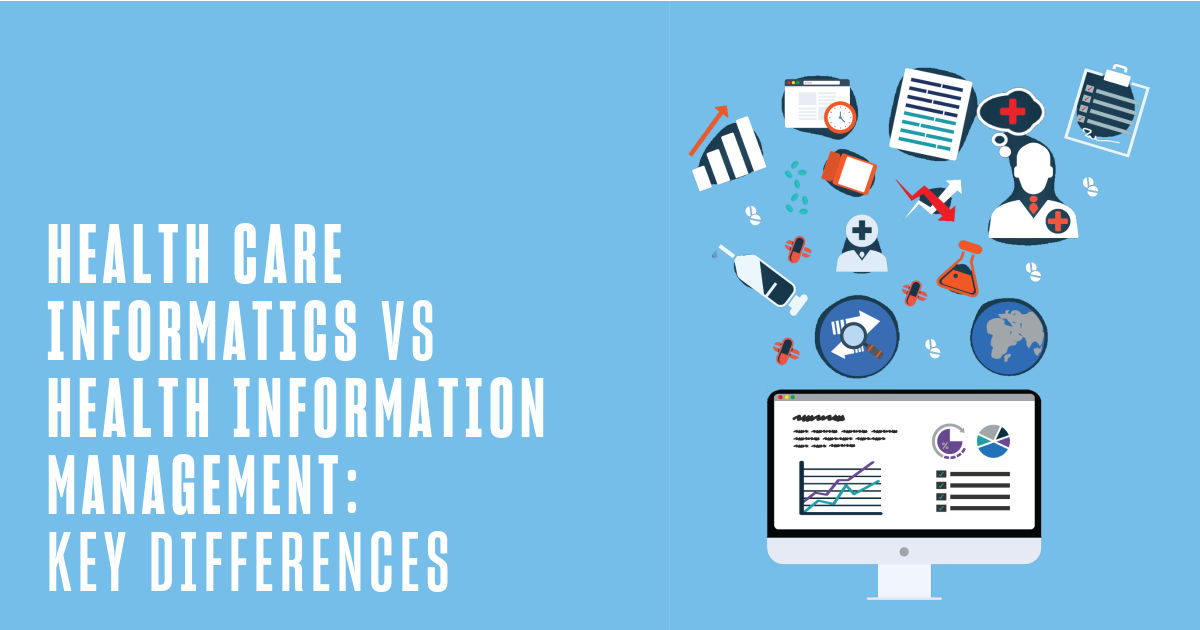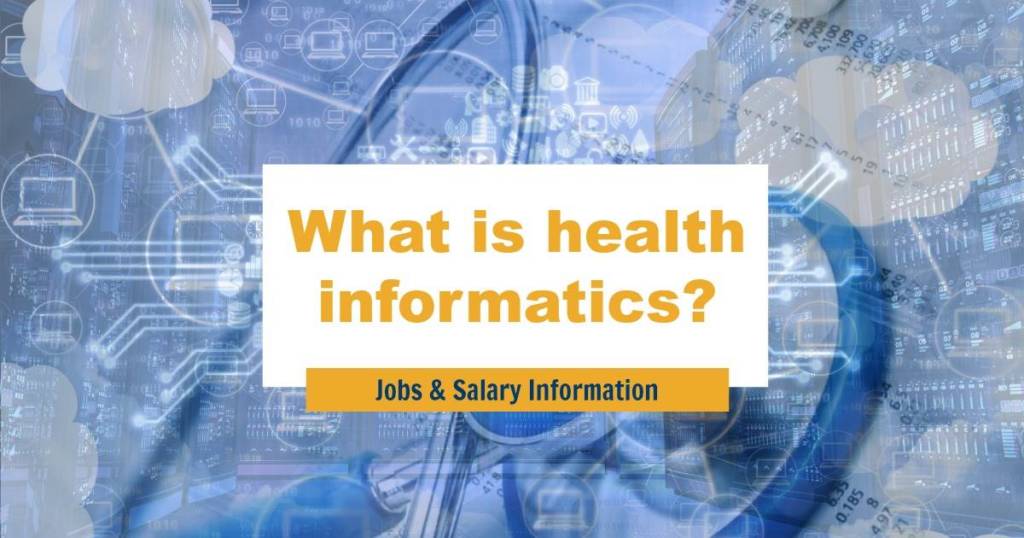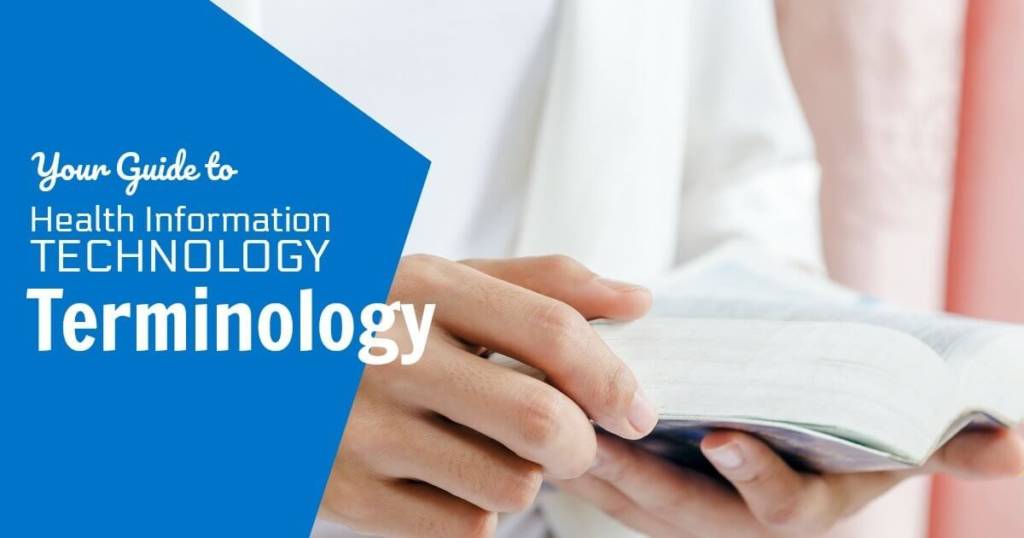What are the differences between health information management and health informatics?
The answer to this question is still evolving as new technology continues to change both the way health care is delivered and the methods used to ensure that vital health records are accurate, secure and accessible to both patients and their clinicians.
The ongoing changes affecting the closely related disciplines of health informatics (HI) and health information management (HIM) are especially important for professionals in both fields, as they affect current and future job roles, responsibilities and career prospects.
What Is Health Information Management?
“Health information management is the practice of acquiring, analyzing and protecting digital and traditional medical information vital to providing quality patient care. It is a combination of business, science and information technology,” according to the American Health Information Management Association (AHIMA).
Working to accurately and securely manage patients’ medical data, health information professionals work in a diverse set of roles that affect the quality of patient information and patient care at every touchpoint in the health care delivery cycle.
What Is Health Informatics?
Health care informatics refers to using data and information technology to improve clinical outcomes, lower the cost of care and improve both the patient and provider experience. It has significant applications for health care professionals, public health specialists, insurance industry professionals, medical researchers and biotech companies.
What Does a Health Information Management Professional Do?
A health information management professional obtains, analyzes and protects patients’ medical information, whether in digital or traditional paper form. These professionals focus on securing and managing personal health information and also process records related to billing, patient privacy, data governance and regulatory compliance.
Common job titles for a health information management professional include:
- Billing coder
- Records technician specialist
- Insurance claims specialist or analyst
- Coding manager
- Medical records manager
They are often employed at hospitals, private practices, clinics, medical groups, health insurance organizations, pharmacies and laboratories.
What Does a Health Informatics Professional Do?
A health informatics professional uses their training and knowledge of health care, information systems, databases and information technology to gather, store, analyze and manage patient data and the process of clinical documentation.
Common health care informatics job titles include:
- Clinical informaticist
- Health (or clinical) informatics analyst, specialist or coordinator
- Health (or clinical) informatics lecturer or professor
- Electronic medical record trainer
- Director of clinical informatics
- Informatics nurse
- Clinical analyst
Similar to a health information professional, professionals in these positions work at hospitals, clinics, medical groups, pharmacies and laboratories. But health informatics professionals also work at health insurance organizations, medical consulting organizations, medical research laboratories and health information technology suppliers.
| Health Information Management | Health Informatics | |
| Definition | The practice of acquiring, analyzing and securing patient medical information | The use of data and information technology to achieve the goals of improved clinical outcomes, lower cost of care |
| Key Responsibilities | Manage patient health information in hospitals and other health organizations. Process medical records related to billing, patient privacy, data governance and regulatory compliance. Complete tasks related to the business of health care, including coding, reimbursement, transcription and overall records management. | Gather, store, analyze and manage patient data and medical records. Develop and implement clinical documentation systems that improve the quality and efficiency of care. Build, optimize and maintain electronic health record (EHR) systems. Provide analytical and leadership skills in projects related to using data and information systems to solve problems. |
| Common Job Titles | Billing coder Records technician specialist Insurance claims analyst Clinical coding specialist Coding manager Patient information coordinator Medical records coordinator/specialist/manager Patient information coordinator Privacy officer/manager Compliance officer Health information management director Revenue Cycle Manager or Director | Clinical informaticist Health (or clinical) informatics analyst Health (or clinical) informatics technician, specialist or coordinator Health (or clinical) informatics lecturer or professor Electronic medical record trainer Director of clinical informatics Chief medical information officer (CMIO) — requires medical degree Chief nursing information officer (CNIO) — requires nursing degree Health care informatics security and data manager |
| Roles/Duties | Organize and manage patient data Code health information for reimbursement and research Process health data for billing and reporting purposes Ensure patient and organizational data meet regulatory compliance Comply with all relevant standards regarding health information Protect the privacy and security of patient health information (HIPAA) | Develop information systems/processes that improve quality and efficiency of care Build, optimize and maintain electronic health record (EHR) systems Design, develop and evaluate emerging technologies Provide data management, analytical and leadership skills Design and maintain medical databases, computer networks and applications Evaluate impact of IT on clinical workflow and outcomes Develop data analysis and utilization protocols Develop data management, privacy and security policies and systems |
| Potential Employers | Hospitals Clinics Private practices Nursing homes Medical groups HMOs Health insurance organizations Pharmacies, laboratories and other ancillary providers | Hospitals Clinics Medical groups HMOs Health insurance organizations Medical research laboratories Medical technology and software vendors Health information technology suppliers Medical consulting organizations Pharmacies, laboratories and other ancillary providers |
Key Differences Between Health Information Management and Health Informatics
While both disciplines involve health information technology and electronic health records (EHRs), there are some significant differences.
Health information management involves the organization, processing and management of data — everything from patient medical records to billing and coding information.
Health informatics, on the other hand, refers to using patient and provider data to achieve specific desired outcomes. A subsection of health informatics, health data analytics, is an area of data science that includes organizing, managing and analyzing large and varied data sets.
HIM professionals work in a diverse set of roles that affect the quality of patient information and patient care at every touchpoint in the health care delivery system. For health information management professionals, the field of health informatics holds great potential for career advancement in roles that require more complex analysis and technical skills.
[RELATED] Opportunities in Health Informatics Are Vast for Those with a Master’s Degree >>
How Health Informatics is Creating New Opportunities for Health Information Management Professionals
Health informatics is an exciting prospect for many working in health information management because the HIM field traditionally has been one that could feel somewhat limiting in terms of possibilities for moving up the career ladder.
While the medical world’s ever-greater ability to collect and analyze data, and use it to improve human health, is common to both the health information management and health informatics professions — the expanding impact of digital technology in modern medicine has created significant demand for professionals equipped with advanced education in informatics.
For those who aspire to position themselves for success in the evolving HI vs. HIM employment landscape, the need to develop new skill sets is paramount.
[RELATED] What Skills Do You Need for a Successful Career in Health Care Informatics? >>
Educational Opportunities for Transitioning from HIM to Health Informatics
A graduate degree program is an excellent way to obtain the skills and knowledge needed for a successful health informatics career.
Since health informatics is a rapidly evolving field, you will want to look for a program that offers an up-to-date curriculum that not only introduces you to the technical, programmatic and analytics skills but also addresses current issues such as population health analysis, data security, AI/machine learning, predictive analytics, clinical documentation and workflow optimization.
As the science of informatics continues to revolutionize health care, graduate degree programs such as the University of San Diego’s MS in Health Care Informatics have embraced the mission of helping current and future generations of health information management and health informatics professionals.




